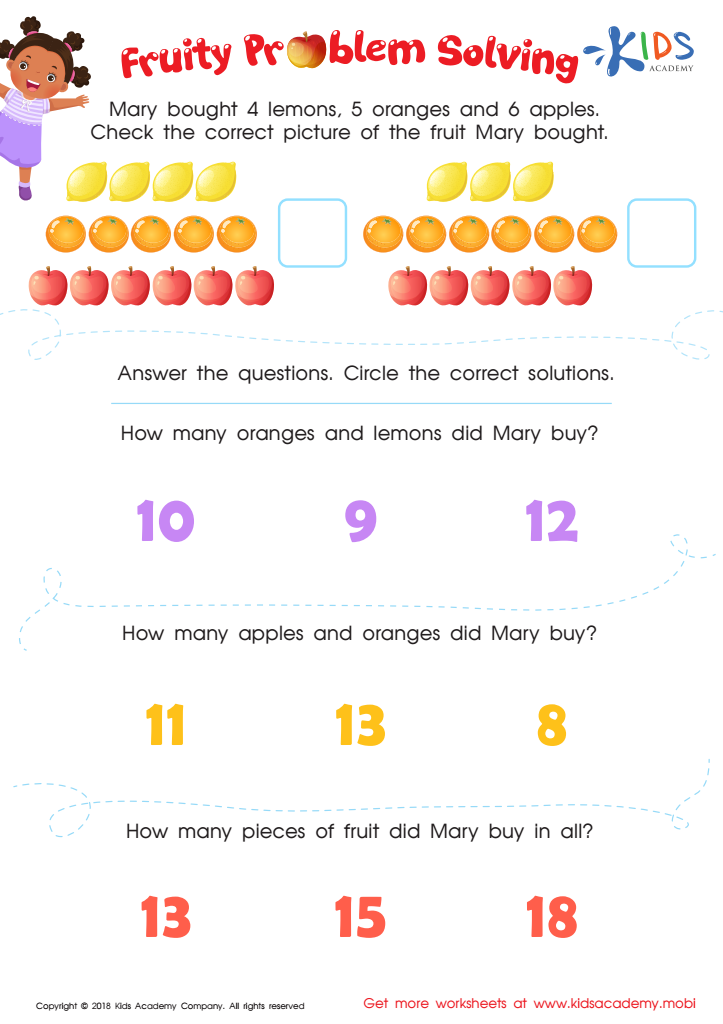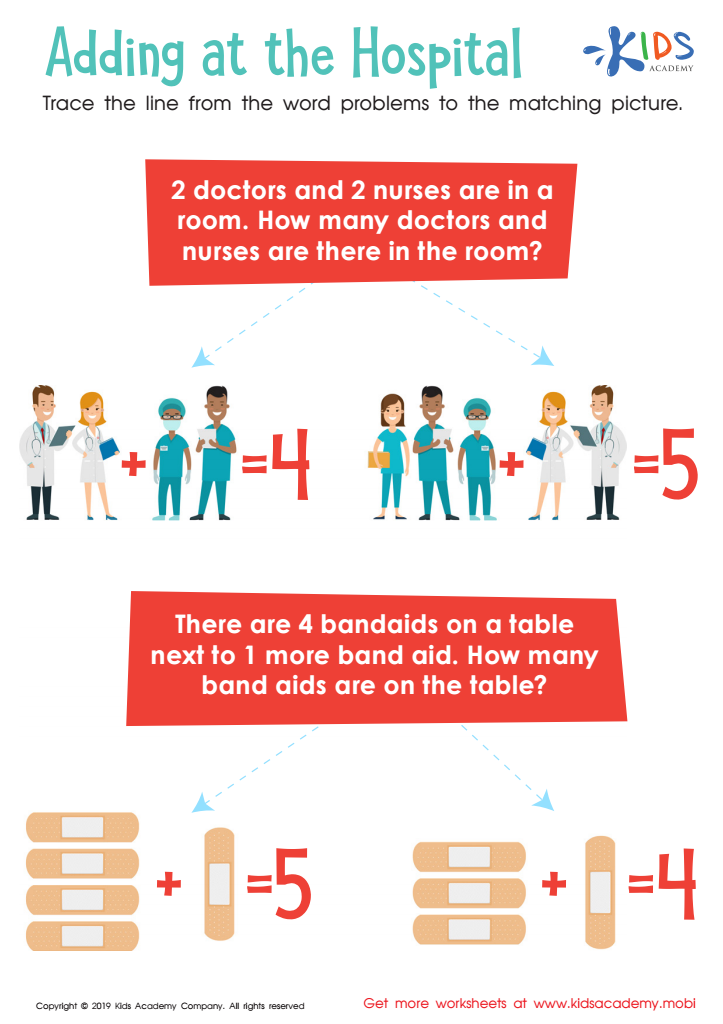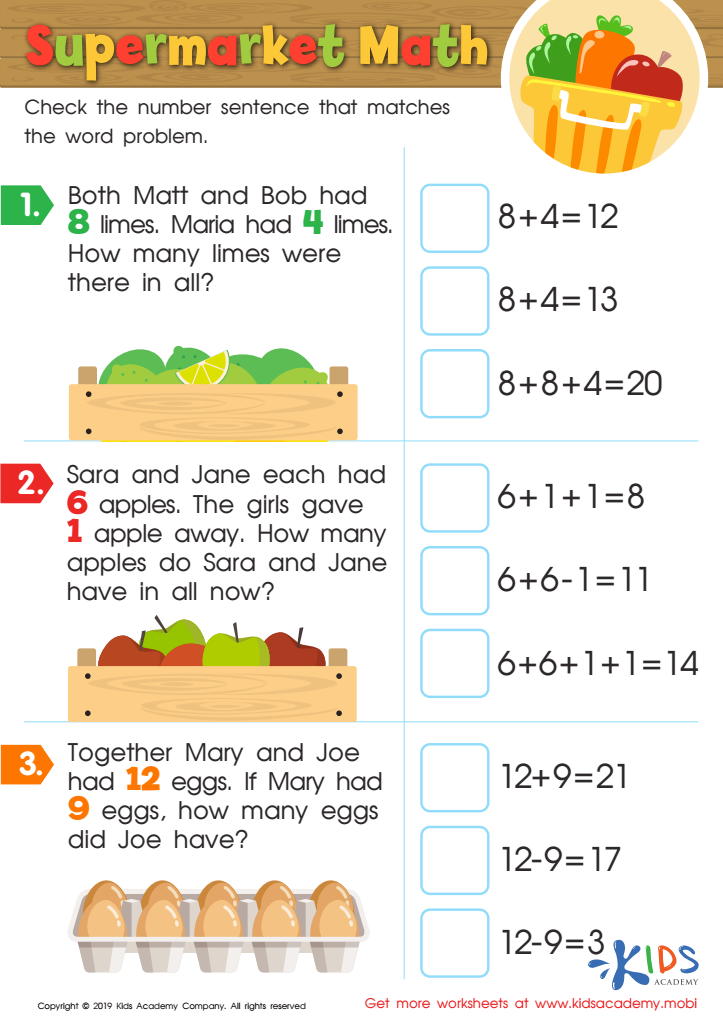Addition skills Normal Word Problems Worksheets for Ages 3-8
4 filtered results
-
From - To
Discover our engaging "Addition Skills Normal Word Problems Worksheets" designed specifically for children aged 3 to 8. These worksheets provide a fun and interactive way for young learners to build their addition skills through relatable, real-life scenarios. Kids will solve word problems that encourage critical thinking and problem-solving while reinforcing their math competencies. Perfect for classrooms or home practice, these worksheets help develop an early love for math in a stress-free environment. Each activity aims to strengthen understanding and retention, ensuring that children grasp essential concepts of addition while enjoying the learning process! Start their math journey today!


Fruity Problem Solving Worksheet


Adding Flower Petals Worksheet


Adding at the Hospital Worksheet


Supermarket Math Worksheet
Addition skills related to normal word problems are crucial for children aged 3-8, as they form the foundation for mathematical understanding and critical thinking. At this early age, children are naturally curious and eager to learn, making it an ideal time to introduce them to real-life applications of math through word problems.
Understanding addition through word problems enhances their comprehension and reasoning abilities. It teaches them to translate words into numbers, fostering critical thinking and problem-solving skills. Furthermore, these activities illuminate how math is relevant to daily life—like counting apples or sharing toys—making learning engaging and meaningful.
Parents and teachers should care about this because foundational math skills directly impact a child’s academic success. Proficiency in addition boosts confidence in math, leading to more complex mathematical concepts as they progress in school. Moreover, word problems encourage collaboration, as children often work together to derive solutions, developing social skills.
Encouraging young learners to tackle word problems not only equips them with essential academic skills but also nurtures a positive attitude towards math. Investing time in these skills will ultimately contribute to their overall development and equip them for future learning challenges.
 Assign to My Students
Assign to My Students















